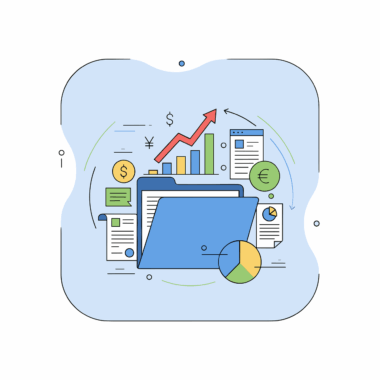Boosting Employee Engagement Through Performance Appraisal Software
In today’s competitive work environment, employee engagement is crucial for maintaining productivity and satisfaction within a team. Performance appraisal software plays a pivotal role in enhancing engagement levels. This software allows organizations to create structured feedback mechanisms, ensuring that employees are recognized for their contributions and growth. By integrating goal-setting features, the software encourages employees to actively participate in their developmental processes. Easy access to data enables management to offer personalized feedback, which tends to resonate better with employees. Furthermore, regular check-ins and follow-ups facilitated by the software foster a culture of continuous progress. When team members see their objectives and growth tracked systematically, their motivation naturally increases. Engaged employees are often more productive, resulting in improved organizational outcomes. The software also provides a platform for employees to voice their feedback, aligning their career aspirations with company goals. Consequently, the combination of clear expectations, continuous feedback, and employee involvement drives engagement. Ultimately, organizations that leverage performance appraisal software witness enhanced job satisfaction and lower turnover rates. Thus, investing in such tools is not merely beneficial but essential for long-term success in people management.
Further enhancing engagement via performance appraisal software involves the utilization of specific features. These capabilities often include real-time feedback and advanced analytics, allowing managers to identify areas needing improvement swiftly. Regular feedback not only motivates employees but also reinforces a sense of accountability. By implementing a peer review system, employees can engage in constructive criticism with their colleagues, cultivating teamwork and mutual respect. Moreover, recognizing achievements through this software can foster a positive work environment, encouraging others to excel. The incorporation of gamified elements, such as badges and scores, can create excitement around performance expectations and achievements. Designation of clear benchmarks and objectives also assists employees in understanding their roles better and contributes significantly to their engagement levels. Engaging performance appraisal tools help simplify the review process, making it less intimidating and more informative. Companies can also utilize training modules embedded within the software to guide skill development based on performance reviews. Thus, organizations that deploy performance appraisal software not just streamline their evaluation processes but create pathways for employee advancement, leading to higher engagement levels across the board.
In addition to facilitating feedback, performance appraisal software assists in aligning personal goals with organizational objectives. Employers can utilize the software to help employees set measurable corporate goals that are individualized, spurring higher levels of personal investment. This alignment enables employees to grasp how their work contributes directly to the company’s success, fostering a sense of ownership and accountability. Furthermore, when employees can view their progress towards these goals, it enhances their understanding of their professional journey and promotes job satisfaction. The transparency provided through this software enhances trust and strengthens relationships between management and team members. Regular performance reviews conducted through these tools ensure that employees stay on track with their goals, making adjustments if necessary. As a result, employees become actively engaged in their professional growth, often seeking promotions or additional responsibilities. Performance appraisal software can also highlight patterns in employee performance, giving insights into both strengths and areas needing development. Therefore, organizations can use data collected through these apps to tailor training and support systems accordingly, further boosting the employees’ engagement and satisfaction at work.
Encouraging a Culture of Continuous Improvement
Moreover, adopting performance appraisal software encourages a culture of continuous improvement. The ability of organizations to provide constructive feedback regularly leads to team members feeling more valued and understood. This constructive feedback promotes a growth mindset by emphasizing that improvement is always possible. Employees who know their work is being acknowledged and addressed tend to strive for enhancement continually. During performance evaluations, organizations can also incorporate developmental discussions, enhancing engagement levels and actively involving the employee in their improvement plans. This collaboration not only increases motivation but also helps develop trust in the employer-employee relationship. By fostering open lines of communication, employees feel more comfortable sharing their challenges and successes, which is fundamental for maintaining engagement. Research shows that companies prioritizing continuous improvement see increased retention rates and employee loyalty. Engagement rises further when employees are encouraged to pursue professional development opportunities, including workshops, training, or courses related to their job roles. Performance appraisal software aids in tracking these development opportunities, ensuring that employees know available resources to improve. Creating an environment where continuous growth is celebrated significantly contributes to overall employee satisfaction and motivates better outcomes.
The integration of employee feedback mechanisms into performance appraisal software cannot be overstated. Giving employees a say in evaluations aids in recognizing their needs and insights. When employees feel their opinions are valued, they perceive their workplace as more inclusive, which directly accelerates engagement. Aspects like self-assessments and peer contributions can uniquely customize the review process, making employees feel more involved. This two-way feedback loop fosters stronger communication between management and employees. Management can spot potential talent and areas of concern more efficiently while also cultivating a workspace where ideas thrive. Furthermore, allowing for anonymous feedback can lead to valuable insights that may not surface otherwise. Trust is crucial when gathering employee feedback, and performance software can facilitate this with ease. Incorporating suggestions from employees helps drive changes that directly affect their experience at work, enhancing their involvement. Consequently, organizations utilizing enhanced feedback mechanisms within performance appraisal software witness improved morale. Stronger relationships between employees and management create a more invested team. Ultimately, the conscious inclusion of employee feedback fosters not only higher engagement but a more positive organizational culture.
Another essential benefit of performance appraisal software is its ability to provide clarity and direction. Organizations can set specific performance metrics and expectations, empowering employees with the understanding of success criteria. These explicit guidelines encourage workers to remain focused on their goals, knowing expectations are clear. With performance appraisal software, employees gain insights into their performance and relative standings within their teams. Visibility into performance metrics boosts their motivation and encourages healthy competition. When individuals can constantly access feedback and performance data, they tend to stay engaged as they witness their progress and development firsthand. Furthermore, performance management tools also enable leaders to identify high performers quickly, allowing organizations to leverage their abilities effectively. Rewarding top performers encourages a competitive spirit that can inspire others to strive for excellence. Additionally, the software can highlight trends over time, guiding companies in making data-driven decisions regarding workforce planning and development. In the long term, such clarity assists organizations in retaining talent and promoting from within, significantly impacting overall employee engagement and satisfaction.
Conclusion: The Transformative Power of Performance Appraisal Software
In conclusion, performance appraisal software fundamentally transforms how organizations approach employee engagement. Its capability to streamline feedback, set clear goals, and encourage continuous improvement creates a compelling case for its adoption. The positive ripple effects of engaging employees through structured performance reviews lead to increased motivation, productivity, and retention. When organizations prioritize employee engagement, they foster a culture of transparency and collaboration. These software solutions enhance communication, build stronger management-employee relationships, and ensure employees feel valued and heard. Furthermore, by integrating professional development opportunities with performance evaluations, organizations can empower their workforce and motivate personal growth. The adoption of performance appraisal software is not just a technical upgrade. It represents a cultural shift towards recognition and accountability, crucial in today’s competitive marketplace. Consequently, businesses seeking sustainable growth should invest in such tools to enhance engagement and cultivate a high-performing workforce. Organizations embracing performance management technology will likely outperform competitors and achieve their goals more efficiently. Ultimately, this investment in performance appraisal software is vital for organizations aiming to thrive in the ever-changing business landscape.








